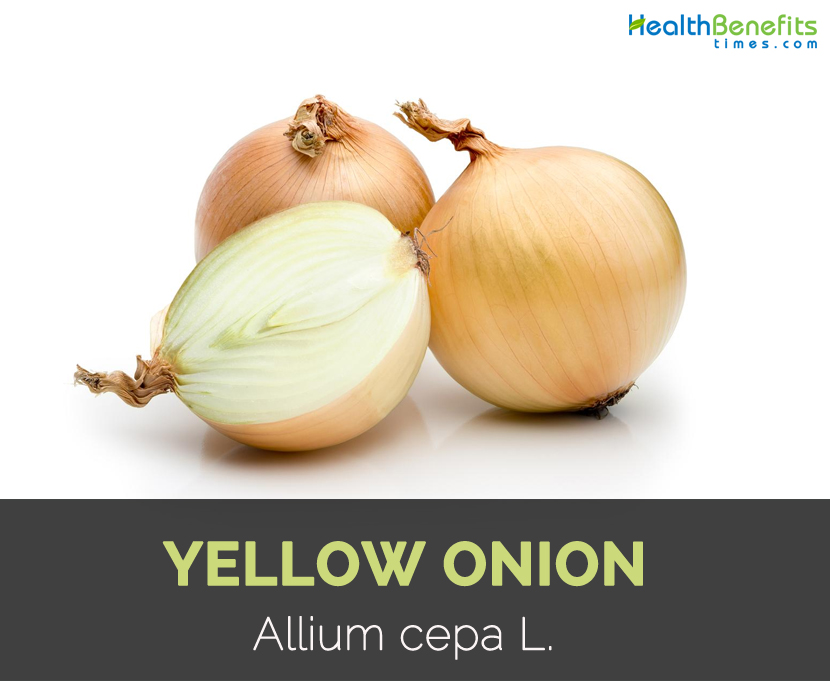Yellow onions are found throughout the year and grown between spring and fall. In northern Europe, it is commonly cultivated and makes 90% of onions grown in the United States. Store it at cool room temperature in a dark place. Store the cut or peeled onions in a plastic in the fridge but lasts only for few days.
Yellow onions have rich onion taste and used in various food dishes such as soups, braises, stews, shish kebabs and sautéed dishes.
How to store yellow onions
Store the yellow onions in a cool and dark place. Cut onions could be stored in an air tight container and wrapped in a plastic or kept in a fridge.
Culinary uses
- Yellow onions are used in soups, stews, sauces and roasts.
- It is cooked into casseroles, gratins, braises and added to roasted meats or vegetables.
- It pairs well with curries, cream sauces, parsley, pasta dishes, potatoes, Dijon mustard, peas, green beans, tomatoes, turnips, beets, light bodied vinegars, red wine and meats such as turkey, poultry, pork, beef, steak, veal and white fish, cheddar, goat and aged sheep’s cheese.
Side effects
- Avoid consuming it raw as it possess strong flavor.
- Onion make people cry.
References:
https://en.wikipedia.org/wiki/Yellow_onion
https://thecookingdish.com/0330/the-difference-between-yellow-onions-white-onions-and-red-onions/
https://www.chatelaine.com/food/how-to/types-of-onions/
https://www.specialtyproduce.com/produce/Yellow_Onions_689.php
Comments
| Yellow Onions Quick Facts | |
|---|---|
| Name: | Yellow Onions |
| Scientific Name: | Allium cepa L. |
| Colors | Yellow-brown or pale golden |
| Flesh colors | Greenish-white, light yellow, or white |
| Taste | Strong, more complex |
| Calories | 107 Kcal./cup |
| Major nutrients | Total Fat (lipid) 9.4 g (26.86%) Vitamin K (phylloquinone) 18.8 µg (15.67%) Vitamin B6 (Pyridoxine) 0.18 mg (13.85%) Carbohydrate 6.84 g (5.26%) Phosphorus, P 29 mg (4.14%) |
| Name | Yellow Onions |
|---|---|
| Scientific Name | Allium cepa L. |
| Common/English Name | Brown onion |
| Leaves | Hollow, bluish-green |
| Skin | Yellow-brown or pale golden |
| Scales | Greenish-white, light yellow, or white |
| Flavor/aroma | Strong, more complex |
| Season | Spring and fall |
| Major Nutritions | Total Fat (lipid) 9.4 g (26.86%) Vitamin K (phylloquinone) 18.8 µg (15.67%) Vitamin B6 (Pyridoxine) 0.18 mg (13.85%) Carbohydrate 6.84 g (5.26%) Phosphorus, P 29 mg (4.14%) Total dietary Fiber 1.5 g (3.95%) Vitamin E (alpha-tocopherol) 0.59 mg (3.93%) Manganese, Mn 0.089 mg (3.87%) Vitamin B1 (Thiamin) 0.043 mg (3.58%) Vitamin B5 (Pantothenic acid) 0.15 mg (3.00%) |
| Calories in 1 cup chopped (87 g) | 107 Kcal |



